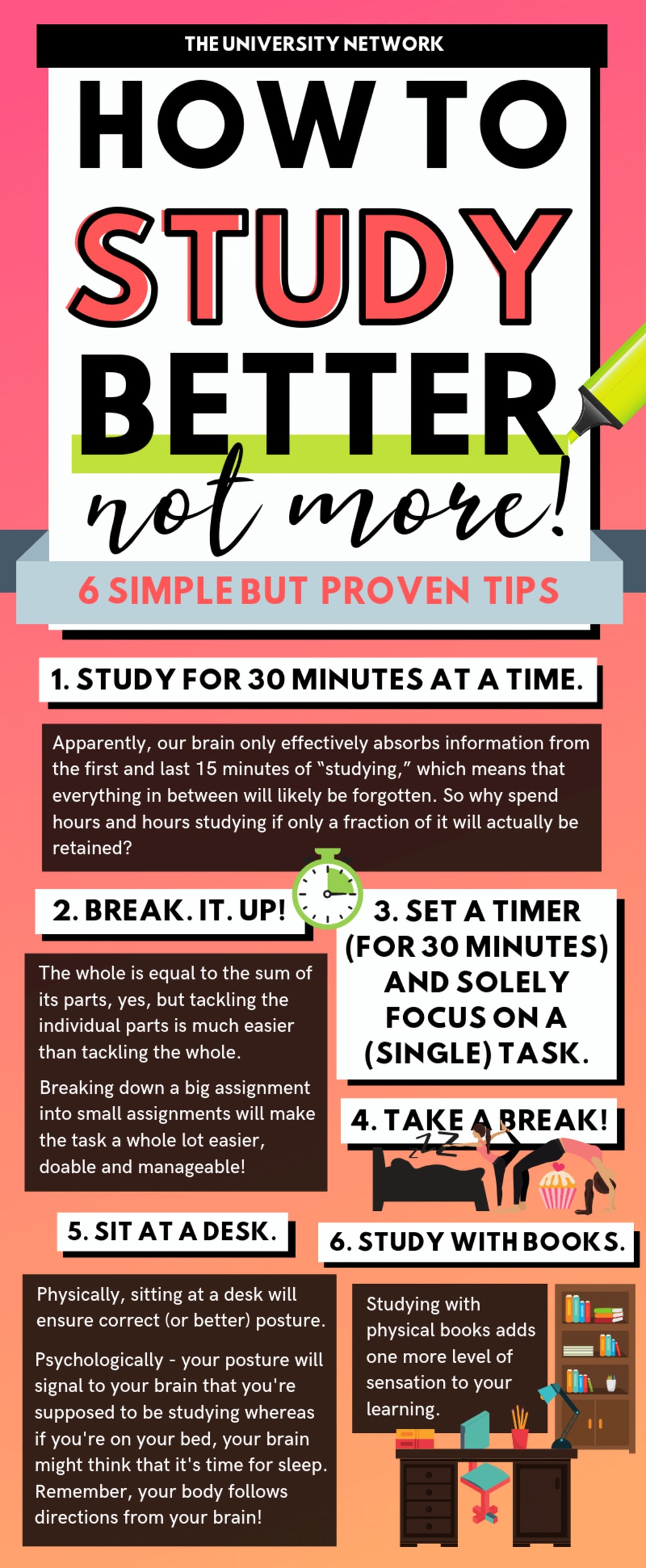How To Study Easily Without Tension
1.Understanding the Importance of Study Environment

How to Study Easily Without Tension
Introduction
Studying is an essential part of academic success, but it can often be accompanied by stress and tension. However, with the right approach and strategies, you can make the studying process easier and more enjoyable. In this article, we will explore various techniques that will help you study effectively without unnecessary tension. By implementing these methods, you can enhance your learning experience and achieve better results in your academic endeavors.
Table of Contents
1.Understanding the Importance of Study Environment
2.Creating a Productive Study Schedule
3.Breaking Down the Material into Manageable Chunks
4.Utilizing Active Learning Techniques
5.Embracing Effective Note-Taking Strategies
6.Making Use of Visual Aids
7.Seeking Clarification and Asking Questions
8.Practicing Regular Self-Assessment
9.Managing Time and Avoiding Procrastination
10.Incorporating Study Breaks
11.Adopting Healthy Habits and Lifestyle Choices
12.Developing Effective Memorization Techniques
13.Exploring Alternative Learning Resources
14.Collaborating with Study Groups
15.Celebrating Achievements and Staying Motivated
1.Understanding the Importance of Study Environment
Creating an ideal study environment is crucial for effective learning without tension. Find a quiet and comfortable space where you can focus and concentrate. Ensure that your study area is well-lit and free from distractions. Remove any potential disturbances, such as electronic devices or noise, that may hinder your concentration.
2.Creating a Productive Study Schedule
Establishing a study schedule helps you stay organized and manage your time efficiently. Plan your study sessions in advance and allocate dedicated time slots for each subject or topic. Follow the schedule consistently to maintain a disciplined approach to studying. A well-structured routine reduces stress and ensures that you cover all the necessary material effectively.
3.Breaking Down the Material into Manageable Chunks
Large volumes of information can be overwhelming and lead to tension. To alleviate this, break down your study material into smaller, manageable chunks. Divide the content into sections or chapters and focus on one at a time. By tackling smaller portions, you can comprehend and retain information more effectively, minimizing stress and enhancing your learning experience.
4.Utilizing Active Learning Techniques
Passive reading alone is not always the most effective way to study. Engage in active learning techniques to enhance your understanding and retention of the material. This can include methods such as summarizing the content in your own words, teaching the concepts to someone else, or creating flashcards for review. Active learning keeps you actively involved in the learning process, making it easier to grasp and remember information.
5.Embracing Effective Note-Taking Strategies
Taking organized and concise notes is a valuable study tool. Develop a note-taking system that works for you, whether it's using bullet points, diagrams, or highlighting key information. Reviewing your notes regularly reinforces your understanding of the material and helps you recall important points during exams or assignments. Effective note-taking reduces the stress associated with trying to remember everything.
6.Making Use of Visual Aids
Visual aids, such as diagrams, charts, or mind maps, can enhance comprehension and aid in memorization. Create visual representations of complex concepts to simplify understanding and make connections between different ideas. Visual aids provide a visual reference that is easier to recall and can make studying more engaging and enjoyable.
7.Seeking Clarification and Asking Questions
Don't hesitate to seek clarification when faced with difficult or unclear concepts. Reach out to your teachers, classmates, or online resources to gain a deeper understanding. Asking questions not only helps you overcome confusion but also promotes active learning and critical thinking. By seeking clarification, you can eliminate tension caused by uncertainty and gain confidence in your knowledge.
8.Practicing Regular Self-Assessment
Regular self-assessment is essential to gauge your progress and identify areas that require further attention. Test yourself using practice questions or create your own quizzes to reinforce learning and assess your understanding. Self-assessment allows you to identify strengths and weaknesses, enabling you to focus on areas that need improvement. By actively monitoring your progress, you can alleviate tension and stay motivated.
9.Managing Time and Avoiding Procrastination
Effective time management is key to reducing stress and tension while studying. Break your study sessions into manageable time intervals and set specific goals for each session. Avoid procrastination by prioritizing your tasks and starting early. Procrastination can lead to unnecessary stress as deadlines approach, so it's important to manage your time effectively and distribute your workload evenly.
10.Incorporating Study Breaks
Taking regular breaks during your study sessions is vital for maintaining focus and preventing burnout. Short breaks allow your mind to rest and recharge, improving your overall productivity. Engage in activities that relax you, such as going for a walk, practicing deep breathing exercises, or listening to music. Incorporating study breaks into your routine promotes a balanced approach to studying, reducing tension and increasing efficiency.
11.Adopting Healthy Habits and Lifestyle Choices
A healthy mind and body are essential for optimal studying. Maintain a nutritious diet, engage in regular exercise, and prioritize sufficient sleep. Adequate rest and a balanced lifestyle contribute to better concentration, memory retention, and overall well-being. By adopting healthy habits, you can reduce stress levels and approach studying with a clear and focused mindset.
12.Developing Effective Memorization Techniques
Memorization plays a significant role in studying, especially when dealing with facts, formulas, or vocabulary. Experiment with different memorization techniques, such as mnemonic devices, visualization, or association techniques, to find what works best for you. Developing effective memorization strategies enhances your recall abilities, making studying less stressful and more efficient.
13.Exploring Alternative Learning Resources
Diversify your learning experience by exploring alternative resources beyond textbooks. Online tutorials, educational videos, podcasts, or interactive learning platforms can provide different perspectives and engage your interest. Supplementing your studies with varied resources can make learning more enjoyable and help alleviate tension associated with monotonous studying.
14.Collaborating with Study Groups
Joining study groups can foster a supportive learning environment and offer opportunities for discussion and clarification. Interacting with peers allows you to share ideas, exchange knowledge, and gain different insights. Collaborative studying can reduce tension by promoting a sense of community and providing mutual support during challenging academic tasks.
15.Celebrating Achievements and Staying Motivated
Acknowledge and celebrate your achievements along your academic journey. Set realistic goals and reward yourself when you reach them. Recognize your progress, regardless of its magnitude, to stay motivated and maintain a positive mindset. Celebrating achievements boosts confidence, reduces tension, and enhances your overall study experience.
Conclusion
Studying doesn't have to be a stressful and tense experience. By implementing the strategies discussed in this article, you can create a conducive study environment, manage your time effectively, and utilize various techniques to enhance your learning. Remember to take breaks, ask questions, and adopt healthy habits to support your overall well-being. With a positive mindset and the right approach, you can study easily without unnecessary tension and achieve academic success.
Frequently Asked Questions
1. How long should my study sessions be?
Study sessions should ideally be around 25-30 minutes, followed by a short break. This allows for better focus and prevents mental fatigue.
2. Is it better to study alone or in a group?
This varies from person to person. Some individuals benefit from studying alone, while others find group study sessions more helpful. Experiment and find what works best for you.
3. Can I study effectively while listening to music?
It depends on personal preference. For some individuals, instrumental or background music can enhance focus and concentration. However, lyrics or loud music may be distracting for others. Find what suits your learning style.
4. How can I overcome procrastination?
Start by breaking your tasks into smaller, manageable parts. Set specific goals and deadlines, and reward yourself upon completion. Remove distractions and create a conducive study environment to minimize procrastination.
5. How can I stay motivated throughout my study journey?
Set realistic goals, celebrate your achievements, and remind yourself of the reasons why you're studying. Surround yourself with supportive peers and mentors who can encourage and inspire you along the way.





Comments
There are no comments for this story
Be the first to respond and start the conversation.